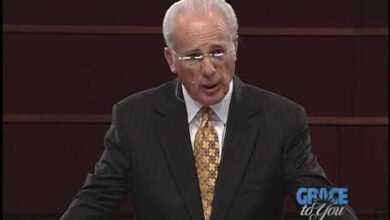Understanding the Sabbath (Genesis 2:1-3)
A few months ago, we explored the end of Mark chapter 2 and the beginning of chapter 3 during the summer, where Jesus was confronted by the Jews for allegedly breaking the Sabbath. In response, He made two significant statements. First, He said, “Man was not made for the Sabbath, but the Sabbath was made for man.” This meant that the Sabbath should not be a burdensome rule, but a gift meant to bring joy and rest to humanity. Sadly, the Jews had turned the Sabbath into a heavy burden. Secondly, Jesus declared, “The Son of Man is Lord of the Sabbath,” asserting His authority over the Sabbath itself.
This raises an important question: What role does the Sabbath play, if any, in the life of God’s people today? Let’s take a moment to turn to Exodus 20, where we find the Ten Commandments. The fourth commandment, found in verse 8, states, “Remember the Sabbath day, to keep it holy. Six days you shall labor and do all your work, but the seventh day is a Sabbath to the Lord your God. On it, you shall not do any work — neither you, nor your son or daughter, nor your male or female servants, nor your animals, nor any foreigner residing among you. For in six days, the Lord made the heavens and the earth, the sea, and all that is in them, but He rested on the seventh day. Therefore, the Lord blessed the Sabbath day and made it holy.”
There is no question about the permanence of the other nine commandments, which are moral commands: no other gods, no idols, no misuse of God’s name, honoring our parents, no murder, adultery, stealing, lying, or coveting. These commandments are timeless. But the question arises about the Sabbath: Is the command to observe it also permanent? Some believe it is, and we refer to these individuals as strict Sabbatarians. They generally fall into two groups: Seventh-day Adventists, who consider the writings of Ellen G. White as divinely inspired alongside the Bible, and Seventh-day Baptists, a smaller group that also views the fourth commandment as permanently binding.
A broader view is that of Christian Sabbatarians, who believe that Christians must observe the Sabbath, but instead of Saturday, they celebrate it on Sunday — the first day of the week. This view was embraced by many Reformed theologians and Puritans, and is also reflected in the 1689 Baptist Confession, which teaches that Sunday should be observed as a new Sabbath, with similar rules and restrictions to the original Sabbath.
So, the question is: Should we continue observing the Sabbath on Saturday, or has Sunday become the new Sabbath as a holy day set apart from all others? To answer this, we need to revisit Genesis 2. In this chapter, we learn that after completing His work of creation, God rested on the seventh day. Genesis 2:2-3 states, “By the seventh day, God had finished the work He had been doing; so on the seventh day, He rested from all His work. And God blessed the seventh day and made it holy, because on it He rested from all the work of creating that He had done.”
Here, we encounter the first use of the word “holy” in the Bible. The word “sanctified” (meaning to set apart) is essentially synonymous with “holy,” and it signifies that God exalted this day above all others. He declared the seventh day to be holy, marking it as a special, elevated day in His creation.

Eddie Mae - 2025-02-25 11:07:14
Need prayer 🤲 for financial growth..